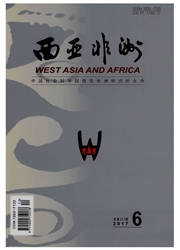

 中文摘要:
中文摘要:
塔利班运动是一场由社会底层毛拉领导的现代宗教一政治运动。塔利班的兴起既是阿富汗现代化中宗教与世俗固有矛盾的反映,也折射出普什图部落社会的权力诉求,还是外部伊斯兰思潮及地缘政治影响的结果。这些因素仍是当前塔利班生存所依赖的社会历史基础。在宗教思想与实践上,塔利班尝试以“经训”为基础,重建政教合一的“哈里发制”,并推行“社会净化”、泛伊斯兰主义与狭隘的民族主义。其思想是传统伊斯兰宗教文化与本土文化的杂糅。塔利班运动在一定程度上代表了当前中东政治伊斯兰的新趋向,并对中东地区的安全与稳定造成深刻的影响。
 英文摘要:
英文摘要:
Led by mullah with low social status, Taliban is a modem religious -political movement. Its rise was the results of intrinsic conflict between religion and secularity, the power demands of Pashtun tribal society, the influences of external Islamic thoughts, and the games of geopolitics. At present, these factors are also the social foundation of Taliban. Based on Sharia, Taliban reconstructed the Caliphate with caesaropapism, and pursued the social purification and PanIslamism. Its thoughts were the muddle of traditional Islamic culture and local culture. To some extent, Taliban represents a new trend of political Islam, and has a great effect on the security and stability in the Middle East.
 同期刊论文项目
同期刊论文项目
 同项目期刊论文
同项目期刊论文
 期刊信息
期刊信息
